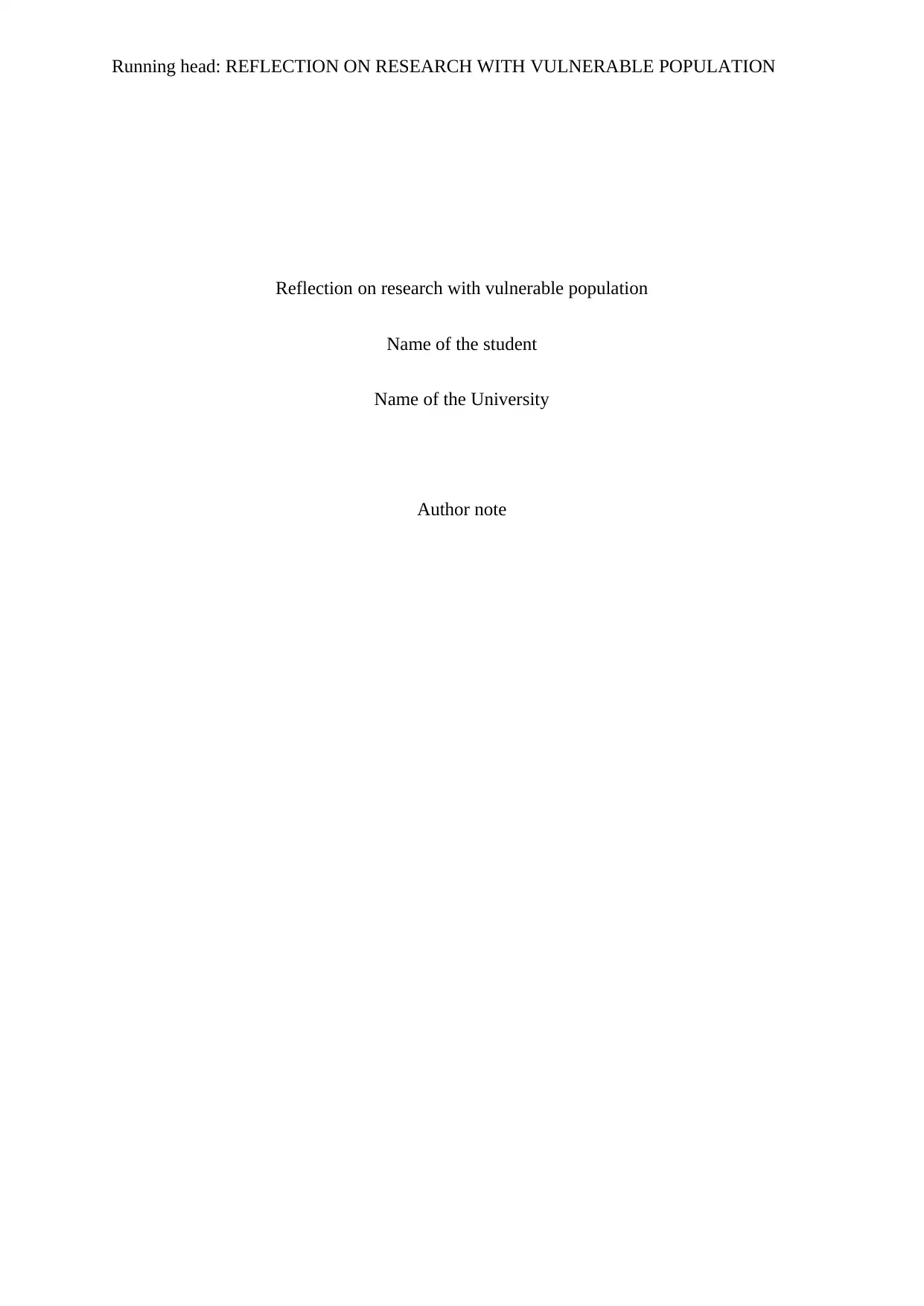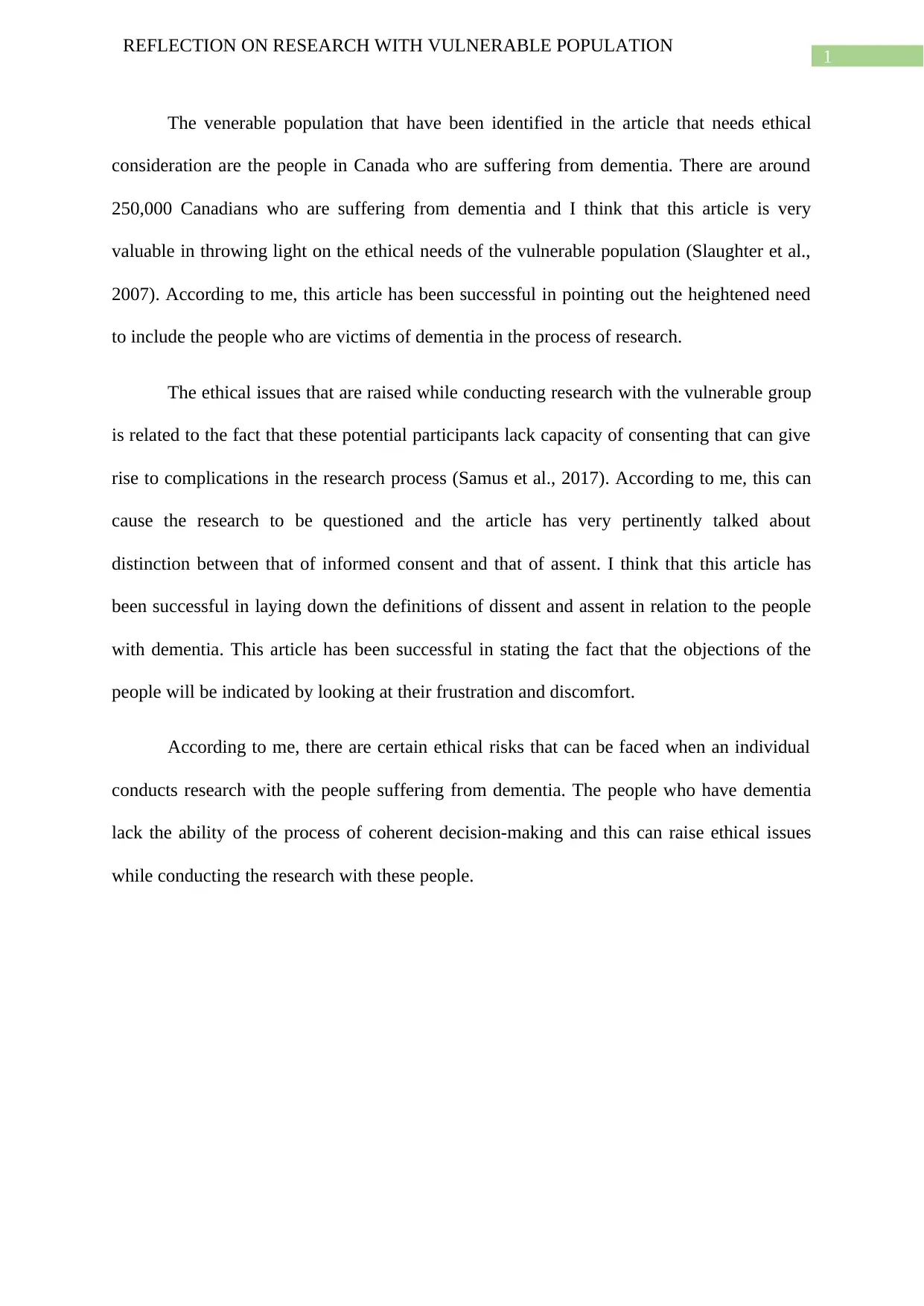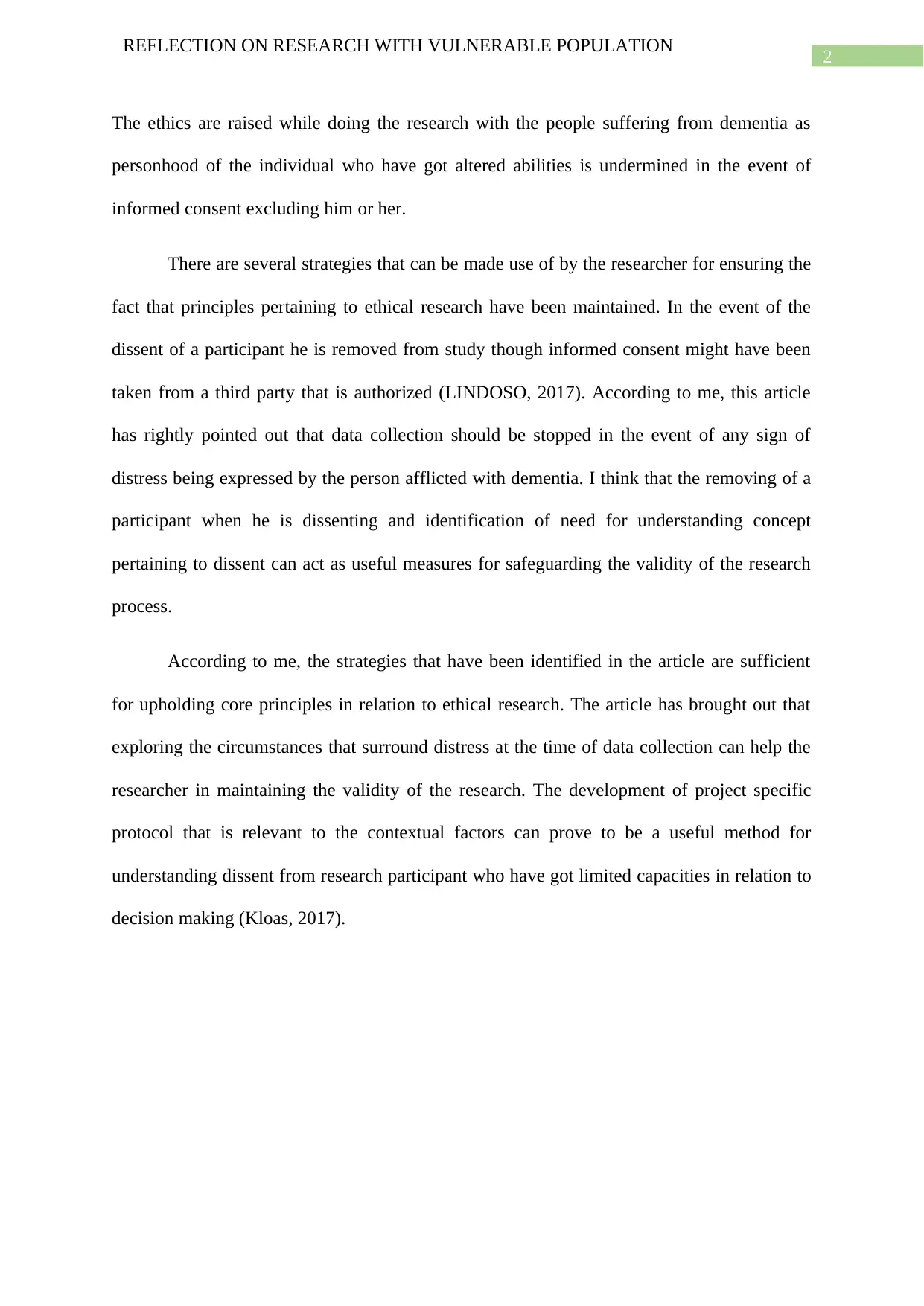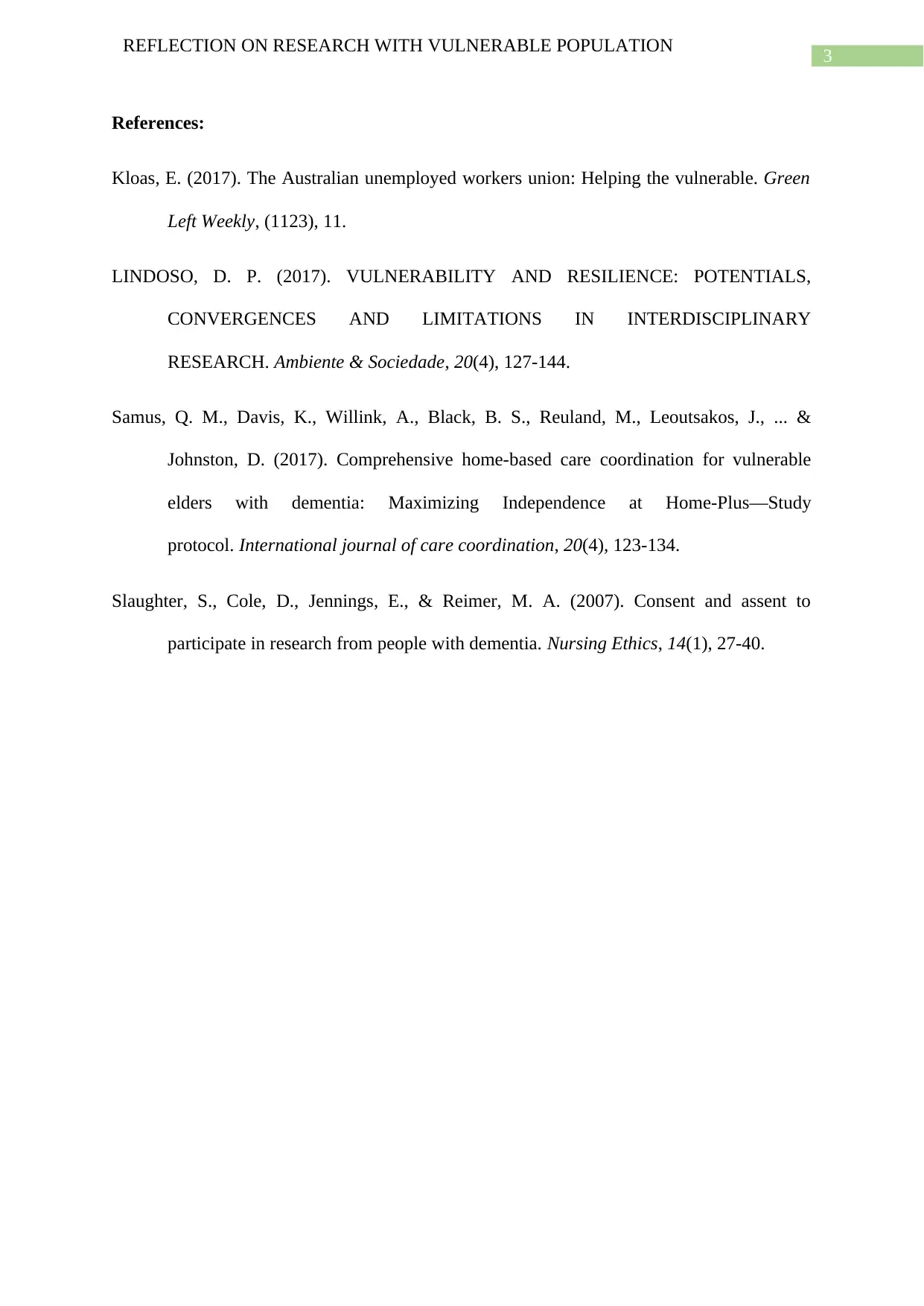University Research Essay: Vulnerable Populations in Dementia Research
VerifiedAdded on 2023/06/10
|4
|751
|272
Essay
AI Summary
This essay provides a reflection on the ethical considerations involved in conducting research with vulnerable populations, specifically focusing on individuals suffering from dementia. The author highlights the importance of ethical guidelines, particularly concerning informed consent and assent, given the potential lack of decision-making capacity in this population. The essay references the article by Slaughter et al. (2007) and discusses the challenges of obtaining consent and the significance of recognizing dissent. It outlines strategies for researchers to uphold ethical principles, such as stopping data collection if distress is observed and developing project-specific protocols. The author emphasizes the need to balance the inclusion of people with dementia in research with the protection of their rights and well-being. The essay underscores the significance of ethical practices in ensuring the validity and integrity of research involving vulnerable individuals, and that the objections of the people will be indicated by looking at their frustration and discomfort.
1 out of 4










![[object Object]](/_next/static/media/star-bottom.7253800d.svg)